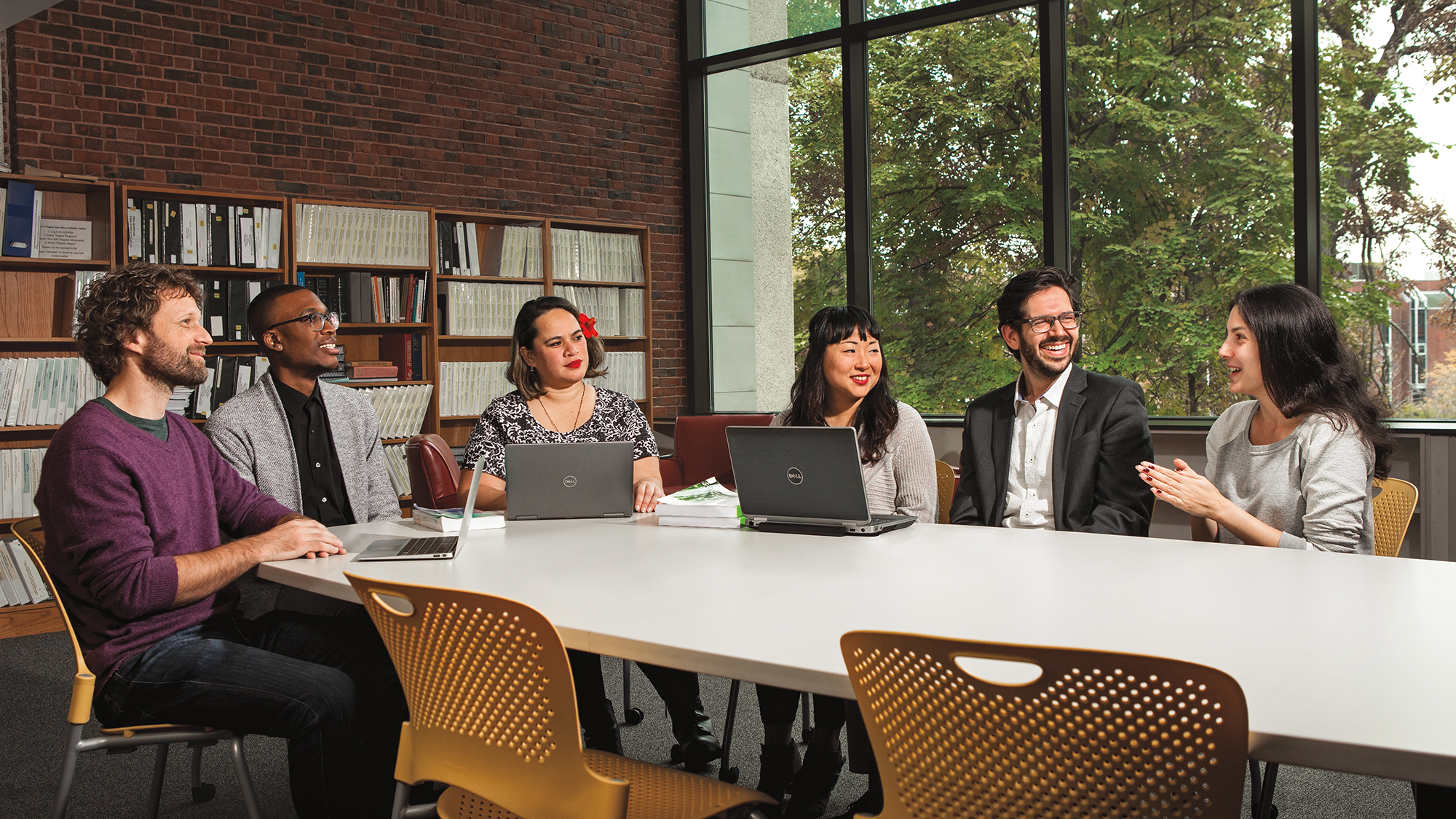
By Daniella Ayesha Fernandes, MA SID/MBA'19, and Bethany Romano, MBA'17
This past August, the Heller School proudly welcomed 200 new students from 45 countries and 28 states to our graduate school community. Like every year, the entering class is full of incredible people who share a deep desire to learn new skills that they can use to improve the world.
The social justice issues they are targeting, however, couldn’t be more different. PhD student Adam Vose-O’Neal plans to research the impact of social networks on addiction recovery. Bishar Jenkins, MPP’20, wants to study health outcomes for people impacted by HIV and AIDS, especially young gay black men. Sita Leota, MA SID’20, hopes to promote civic engagement in her home country of Samoa. Chibo Shinagawa, MS GHPM’19, seeks to improve maternal and child health in Rwanda through community organizing. Max Brodsky, MBA’20, looks to serve transient youth and children in poverty through the nonprofit sector. And Abeer Pamuk, MA COEX’20, dreams of contributing to the peacebuilding process back home in Syria.
Every Heller student has an incredible story, a drive to make change, a purpose to fulfill and a goal for their future. Get to know six of them below.
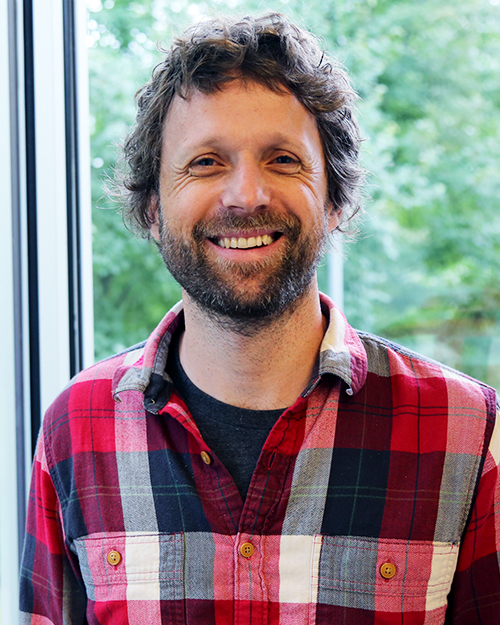
Adam Vose-O'Neal
PhD in Social Policy
Concentration: Behavioral Health
National Institute on Alcohol Abuse and Alcoholism (NIAAA) Fellow
For the last several years, licensed clinical social worker Adam Vose-O’Neal has worked in a clinical practice in Providence, R.I., where he specializes in treating clients with addictions.
He also has one foot firmly planted in the research world. He recently worked as a research associate in Providence, studying whether we can predict addiction relapse by analyzing social network dynamics. He says, “That really got me interested in the broader question of how people get sober. It also got me thinking about the policies we have — drug policy, treatment policy, criminal justice policy — that can either help people, or get in the way.”
Now, Vose-O’Neal is enrolled in the Heller PhD program with a concentration in behavioral health, and is a National Institute on Alcohol Abuse and Alcoholism (NIAAA) Fellow. He continues to treat clients in Providence, and hopes to maintain a clinical practice while pursuing a research career. For his dissertation research, he plans to pursue deeper questions of addiction, sobriety and social networks, informed by his experience as a clinician.
“Something that’s come up in my practice is seeing how people get sober. One interesting thing is that they don’t always do it through conventional treatment. I’ve seen clients who disconnect or connect with people in their lives — change jobs, move, start a new relationship, get out of a relationship — and it’s had an impact on their path, not just to sobriety but sustained sobriety. That’s interesting to me. Not just how people get sober, but stay sober.”
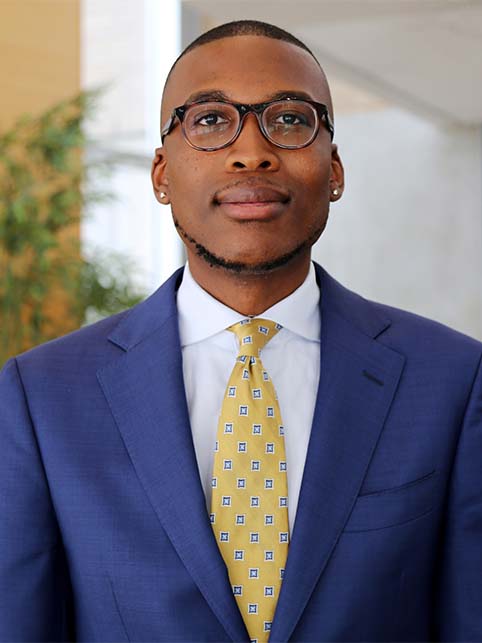
Bishar Jenkins, MPP’20
Master’s in Public Policy
Concentration: Health Policy
“I am both black and queer. These marginalized identities, coupled with the painful experiences that have accompanied those identities, grant me a depth of perspective on issues that affect my community,” says Bishar Jenkins.
Prior to enrolling in the Heller MPP program, Jenkins worked at a nonprofit organization to incentivize redevelopment in Trenton, N.J. He explains, “My role was to reach out to different stakeholders to figure out how to make that process as inclusive as possible and how to work with various groups. To bring everyone to the table and create something everybody is happy with — a redevelopment process that’s equitable.”
Jenkins’ deep commitment to giving back to his communities has already brought him rewarding opportunities. In 2014, he was an Emerging Leaders intern with the Congressional Black Caucus Foundation, working on issues surrounding historic and systemic oppression of the black community across all sectors. Today, Jenkins’ interests lie in policies focusing on HIV and AIDS, particularly for the black community and other marginalized populations.
Jenkins also hopes to contribute to filling the vacuum that currently exists for research within the black LGBTQ community. He says, “I’m considering a PhD program in the future. I want to research health care outcomes for the black LGBTQ community, specifically examining mental health outcomes for populations disproportionately affected by HIV, namely, gay black men from the ages of 18 to 24.
“For me, pursuing graduate school is not a dispassionate exercise to simply gain knowledge, but a mission to actualize social justice.”
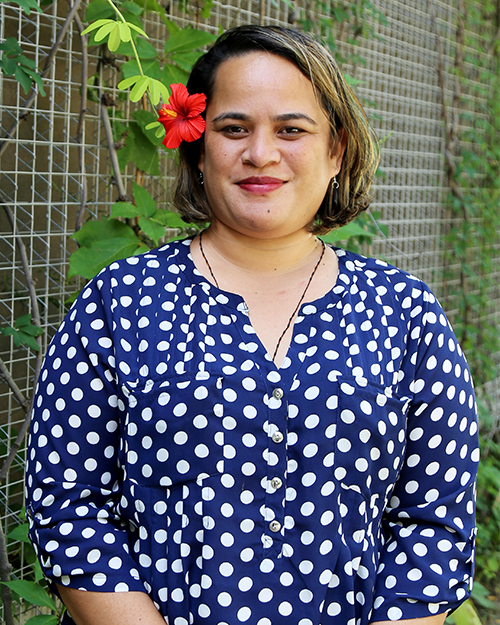
Sita Leota, MA SID'20
MA in Sustainable International Development (SID)
Fulbright Scholar
Before hopping onto a nearly 24-hour-long flight to Boston to join the Sustainable International Development program at Heller, Sita Leota worked as an audit director in the audit office in her home country of Samoa. There, her job was to investigate fraud, compile audit reports and simplify finance for politicians in the government of Samoa.
“When we were growing up, we were limited in the choices of what to study … So, when I got the chance, I applied to the Fulbright Program and chose international relations,” says Leota. “I chose Brandeis because of the programs here at Heller. They were really attractive to me, as I want to work with people back home to bring a change in mindset. This goes together with the Fulbright tradition of making an impact in the lives of people in our communities.”
In her work at the Samoa Audit Office, she was key liaison between the office and Parliament, providing advice to politicians and guiding them on the types of questions they could ask of government entities relating to their performance. She says, “My motivation in pursuing the SID program was to extend that work to help Samoan people debate critically on issues involving the Samoan government and issues that involve the Pacific. There’s a lot of government and public information that’s available, but most people are not aware of that. I want to help Samoan citizens to be engaged in issues, do their research and hold the government accountable.”
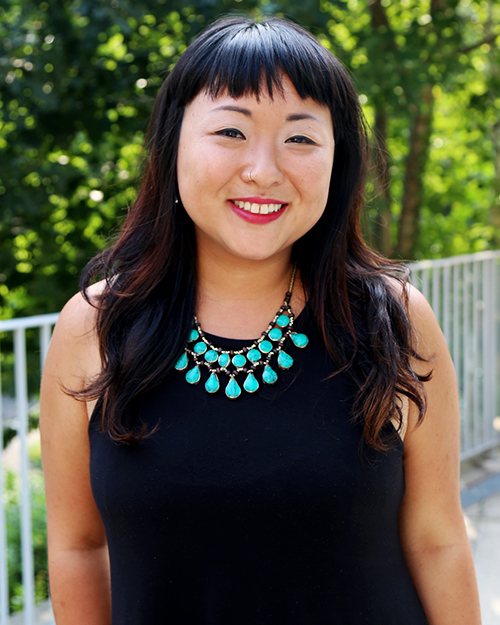
Chibo Shinagawa, MS GHPM'19
MS in Global Health Policy and Management
Concentration: Health Systems
Returned Peace Corps Volunteer
Recipient of Heller Diversity and Inclusion Scholarship
Just one month prior to moving to Waltham and enrolling in her first classes at the Heller School, Chibo Shinagawa wrapped up a two-year post as a U.S. Peace Corps volunteer in the small East African country of Rwanda. While there, she worked on the 1,000 Days initiative, a maternal and child health program focused on reducing the incidence of stunting and malnutrition in children. Today, she’s a student in Heller’s MS in Global Health Policy and Management program, with a concentration in health systems.
Shinagawa found the school through the Peace Corps program website. “I was looking specifically for programs that focus on advancing social justice as part of their curriculum,” she says. “I’ve always been a community organizer at heart. That’s my passion, and I’ve always known my interest was in reproductive health and reproductive justice, which is part of the reason why I decided to join the Peace Corps.”
After Heller, Shinagawa plans to pursue a career path that will bring her back to Rwanda. She hopes to continue advocating for maternal and child health by working in a nonprofit policy or advocacy organization. She’s inspired by what she sees as that country’s strong commitment and significant forward momentum on these issues.
In the end, it all comes down to combining what she learns at Heller with what she knows she already loves: “I love community organizing, and I love being able to work with people to focus on a given goal and support them in developing a stronger community,” says Shinagawa.
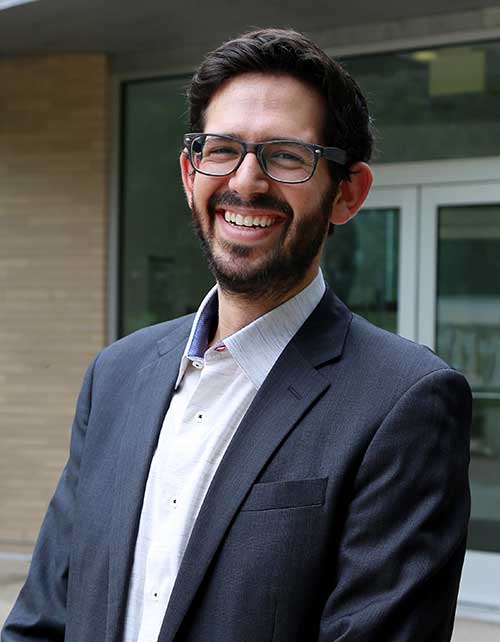
Max Brodsky, MBA'20
Social Impact MBA
Concentration: Child, Youth and Family Services
AmeriCorps VISTA alumnus
Max Brodsky started his career as a teacher, first in Korea and then in New York City charter schools. After several years in the classroom, he decided to take a service year with AmeriCorps VISTA, and ended up being placed at Brandeis, where he helped oversee programs that work with low-income community centers here in Waltham. He says, “Serving with VISTA is something I found to be incredibly important. I was able to fine-tune more of what I hope to be as a leader.” While serving with VISTA, he also took on a director’s role at the Chesterbrook Community Foundation, a Waltham nonprofit engaged in similar work.
“I learned while I was running the nonprofit that there’s so much I don’t know,” he says. “I’d already earned a master’s in education while I was in New York City, but that only teaches me how to convey information, to help children achieve their learning goals and understand educational standards. It doesn’t help me run a balanced budget, or manage operations or build formal HR structures.”
After finishing the Social Impact MA degree, Brodsky hopes to continue his work with organizations that serve children in poverty, perhaps at one that provides education for children of migrant workers and/or transient youth. “We need to have support structures for these kids, some of whom come in at age 18. We need to figure how to best help them before some of the federal funding dries up. I want to be working on those problems.”
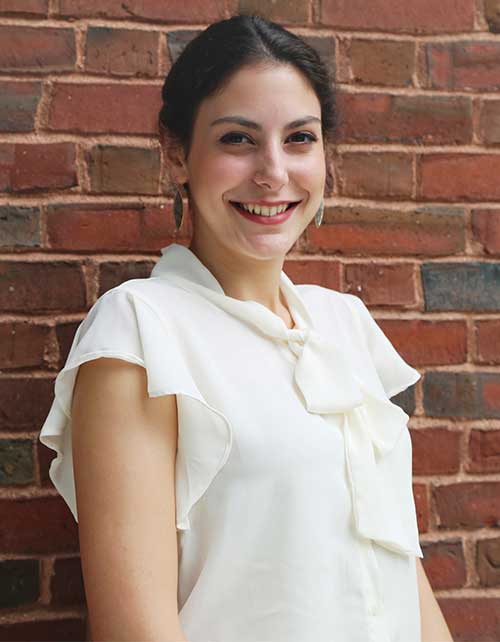
Abeer Pamuk, MA COEX'20
MA in Conflict Resolution and Coexistence
Topol Fellow in Nonviolence Practice
Abeer Pamuk had just finished her first year of study at the University of Aleppo when war broke out in Syria. Eventually, the situation grew so tenuous that her mother sent her to live with an aunt in Lebanon until things improved. A few months later, Pamuk received word that her university had been bombed, and that she had lost four friends. The event compelled her to return to Syria, where she worked for three years with SOS Children’s Villages.
Life for young people in Syria, says Pamuk, “is like someone set the room on fire and locked the door. And as a young person, you have no tools, education or experience to help put it out.” With this thought in mind, Pamuk chose to pursue higher education and was granted the extremely competitive Atlas Corps Fellowship for nonprofit leaders.
“I had no idea the field of coexistence and peacebuilding existed. I found it through a simple Google search, and the Heller School was among the top-10 schools of social policy in the United States. And when I spoke about it to a few people in New York and they all praised Heller, I decided to apply.”
After Heller, Pamuk hopes to return to Syria one day, where she can be part of the peace process. She says, “I personally refuse to see myself as a victim in the Syrian war. I cannot erase it from my memory, but maybe I can erase it from the memory of future Syrians. I want to have control over the future in Syria. I do not want all these scenes and sounds that I have in my head to be a part of the lives of young people in Syria in the future.”
At Heller, Pamuk was not only admitted to the COEX program but also offered the Topol Fellowship in Nonviolence Practice. “The scholarship means the school did everything they could to ensure I attend and for an international student like me, that means a lot.”
